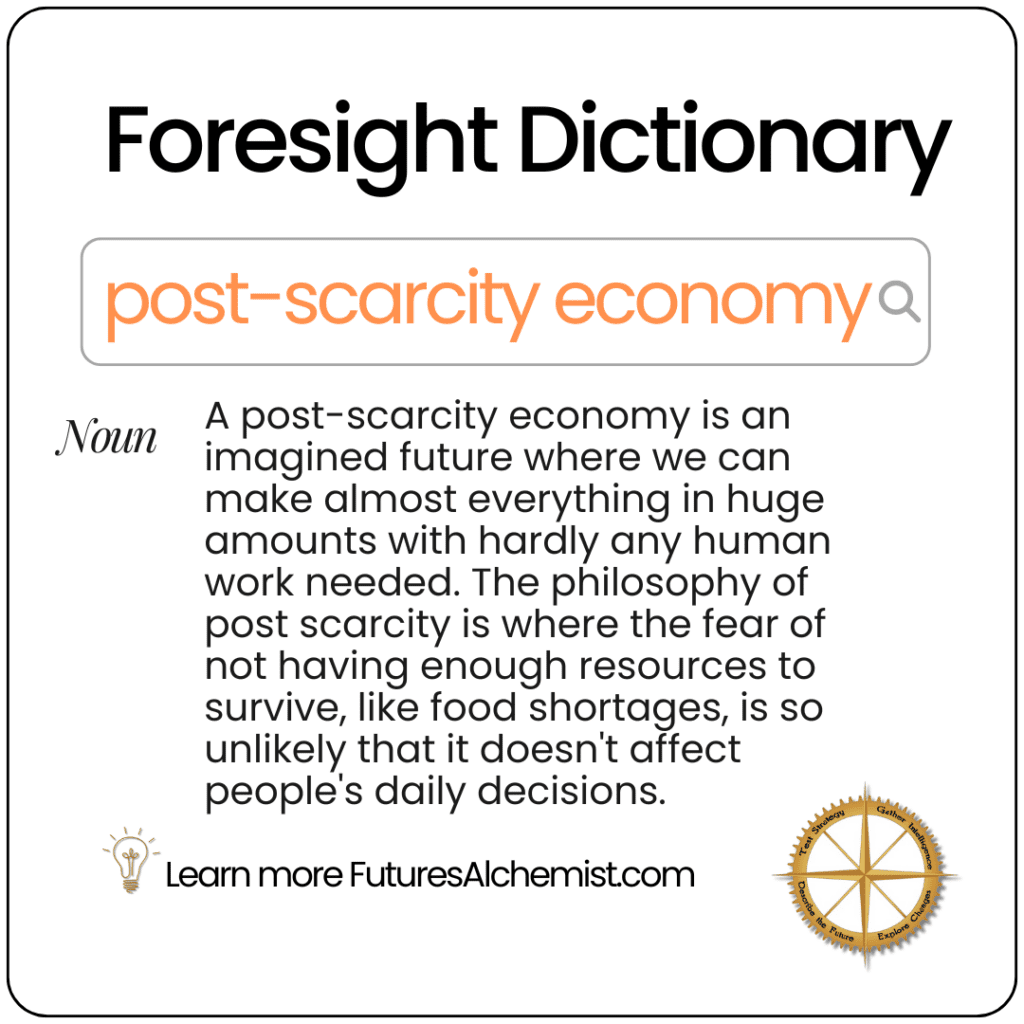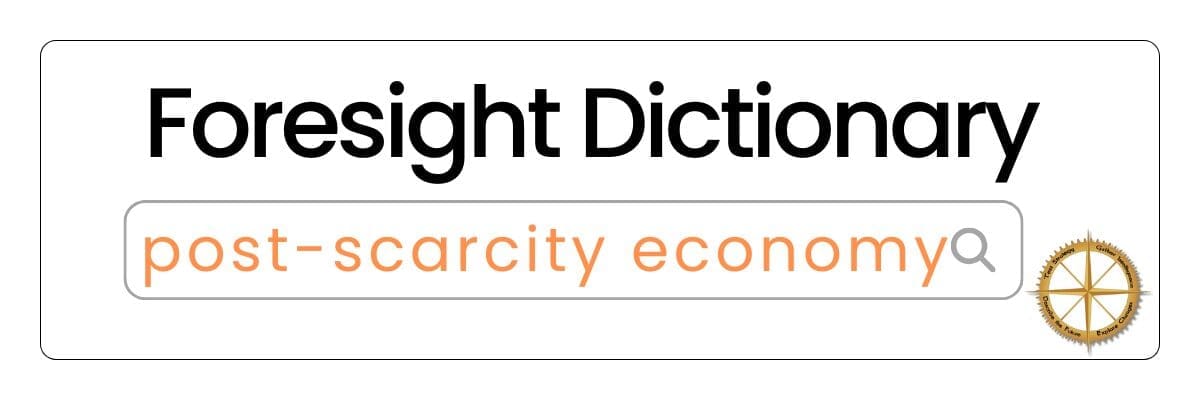

Definition
A post-scarcity economy is an imagined future where we can make almost everything in huge amounts with hardly any human work needed. In this kind of economy, stuff would be really cheap or even free for everyone. Things like advanced automation, renewable energy, and high-tech recycling are usually seen as the big factors that could make this happen.
Example
Open source:
While a true post-scarcity economy doesn’t exist yet, some argue that certain digital goods, like information on Wikipedia or open-source software, demonstrate post-scarcity characteristics. These can be reproduced infinitely at nearly zero marginal cost and are freely available to anyone with internet access.
Ask yourself
- How would human motivation and purpose change in a post-scarcity world?
- How would governance and social structures adapt to post-scarcity conditions?
- What goods, services or other elements might still be scarce in a post-scarcity economy?
- How might the transition to a post-scarcity economy impact global inequality?
- Who does it serve to maintain a belief that something is scarce?
Tools
- Backcasting: To envision the steps needed to reach a post-scarcity future.
- Systems Dynamics: To model the complex interactions in a post-scarcity economy.
- Technological Forecasting: To predict the development of key post-scarcity enabling technologies.
- Delphi Method: To gather expert opinions on the feasibility and implications of post-scarcity.




